The best CPU for gaming in 2022
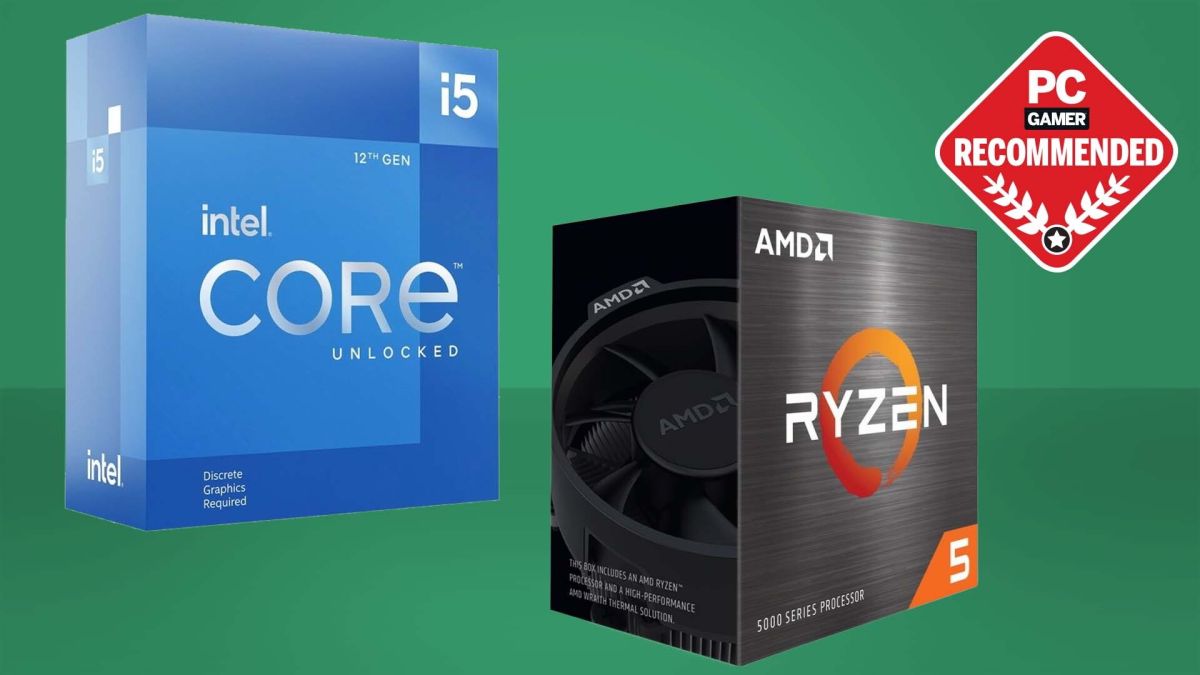
The best CPU for gaming gives you the best frame rates for your budget. What that chip is can be different to different people at different times. The best processor for a particular game may need a high clockspeed, while another may be all about core counts. Relax though, for the vast majority of games you'll need a combination of the two.
The good news is that there are plenty of great processors out there at affordable price points right now. Indeed, with the launch of Intel's 12th Gen Alder Lake family, the best processor for gaming isn't the all-singing, all-dancing halo chip at the pinnacle of Intel's lineup, but one a little further down the pecking order. You'll find the Intel Core i5 12600K newly installed at the top of our list, and for very good reason—it offers awesome gaming performance at a great price point.
Value for money is important, if only because it means you can spend more of your budget on other things like SSDs, better motherboards, more memory, or maybe, just maybe, a better graphics card at some point—if the silicon shortage ever ends. Saving a few dollars here and there on the core components can lead to a much better overall gaming PC. That's something we can definitely get behind.
Every chip on this list has been tested through our intense CPU benchmarking suite on our PC Gamer test rigs. This is made up of plenty of the latest games as well as 3D and video rendering workloads, just because we're all content creators and streamers now. Games are still the most important tests for us though, hopefully for obvious reasons.
Make sure you also check our guide to the best gaming motherboard if you are planning to do a brand new build.
The best CPU for gaming
(Image credit: Future)
1. Intel Core i5 12600K
The best CPU for gaming right now
Cores: 6+4 | Threads: 16 | Base Clock: 3.7 GHz P-core, 2.8 GHz E-core | Boost Clock: 4.9 GHz P-core, 3.6 GHz E-core | Overclocking: Yes | L3 Cache: 20 MB | TDP: 125 W
The best CPU for gaming in 2021Faster than the Core i9 11900KA more efficient Alder Lake chipStill more power hungry than RyzenDoesn't play nice with some games
Intel's 12th Gen Alder Lake processors are a vital return to form for Intel. Its underlying hybrid design was seen as a gamble when it was first announced, with its combo of performance and efficient cores not obviously bringing much to the desktop experience. It's a gamble that has unquestionably paid off though, and the gaming performance offered by Intel's latest CPUs is nothing short of incredible.
The Core i5 12600K is the standout processor for gamers because it not only offers great gaming performance across the board, but it does so at a price point that isn't going to reduce you to tears. It not only beats the similarly priced 5600X in pretty much every game, but it outperforms the $750 Ryzen 9 5950X in plenty of tests too. That it soundly beats the Core i9 11900K is just the icing on the cake. Not bad for a $320 mid-range chip.
As this is a new platform, you will need to pick up a new motherboard and probably new memory while you're at it—Alder Lake supports DDR5 as well as DDR4. That means the initial outlay may be a bit more than you planned, but the performance is worth it, and it isn't a power-draining beast either, so you won't need an outlandish cooler to get the most from it. Throw in future-looking support for PCIe 5.0 and we have a new gaming CPU king. Long live the king.
Read our full Intel Core i5 12600K review.
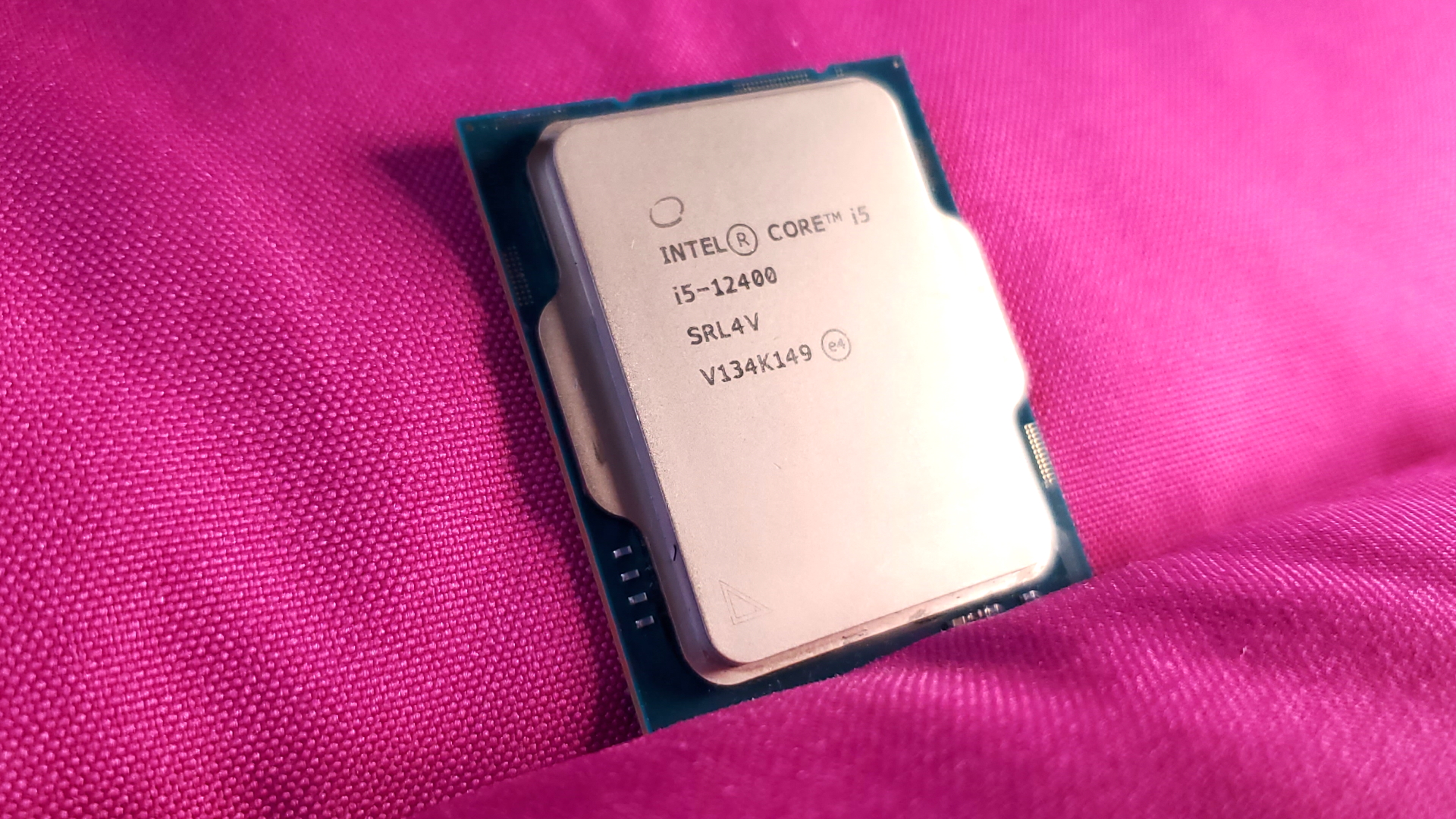
(Image credit: Future)
2. Intel Core i5 12400
The best gaming CPU on a budget
Cores: 6 | Threads: 12 | Base Clock: 2.5 GHz | Boost Clock: 4.4 GHz | Overclocking: Kinda | L3 Cache: 18 MB | TDP: 65 W
Great stock performanceLow power from 65WDoesn't need a beefy coolerIt really goes when overclockedRequires a whole new motherboardBCLK OC may get patched out
The Core i5 12400 is nearing on legendary status in the Alder Lake lineup, and that's because of its unprecedented ability to overclock where it shouldn't. The lack of a 'K' at the end of the Core i5 12400's name should denote its lack of overclocking prowess, but somewhere in the silicon it has the ability for BCLK overclocking.
With a motherboard capable of taking advantage of the Core i5 12400's overclocking ability, we managed to push this little chip that could to 5.2GHz rather happily. It didn't run too hot or too power hungry to do it, either, though you will need to be considerate of cooling potential before attempting this.
Similarly, Intel doesn't recommend anyone does this—though that's true of pretty much any overclocking nowadays. The company also could close the door on the non-K-series overclocking at some point, so keep that in mind if that's the sole reason you're thinking of purchasing this chip.
If you're not looking to overclock in the slightest, however, don't fret. The Core i5 12400 was already impressive without its secret ability, and with cooler included at this price tag, it's one helluva great deal.
Read our full Intel Core i5 12400 review.

(Image credit: Future)
3. Intel Core i9 12900K
The best enthusiast CPU for those that need serious power
Cores: 8+8 | Threads: 24 | Base Clock: 3.2 GHz P-core, 2.4 GHz E-core | Boost Clock: 5.2 GHz P-core, 3.9 GHz E-core | Overclocking: Yes | L3 Cache: 30 MB | TDP: 125 W
Incredible single-threaded performanceMuch improved multithreaded abilityBig leap for Intel's Core CPUsThe best desktop platform with DDR5 and PCIe 5.0 supportSome games don't play nicely with Alder Lake yetHigh power consumptionPotentially high platform costs at launch
That the Core i5 12600K takes the top spot is hard to argue with—awesome performance at a good price will do that—but Intel's top chip hitting the second spot may be a little more surprising. The reasoning here is that the vast majority of gamers should get the Core i5, leaving this second spot covering those that need even more performance.
If you're building a high-end PC not just for high-end, 4K gaming, but for more serious pursuits like 3D rendering and video editing, then this is the chip for you. It's a powerhouse, no question about it, but one that really needs a system built around it to make it shine—you'll need a beefy PSU to get that absolute best from it, and a serious cooler wouldn't hurt either. The fact that there is plenty of overclocking headroom will allow you to push it to a whole new level as well.
When it comes to gaming performance, this is the fastest chip out there, by a considerable margin. The problem is, you only get a few more frames per second over our top recommendation and you have to pay royally for the privelige. And even when you're buying an 'ethusiast' class CPU, you still need to have an eye on overall value for money.
Read our full Intel Core i9 12900K review.
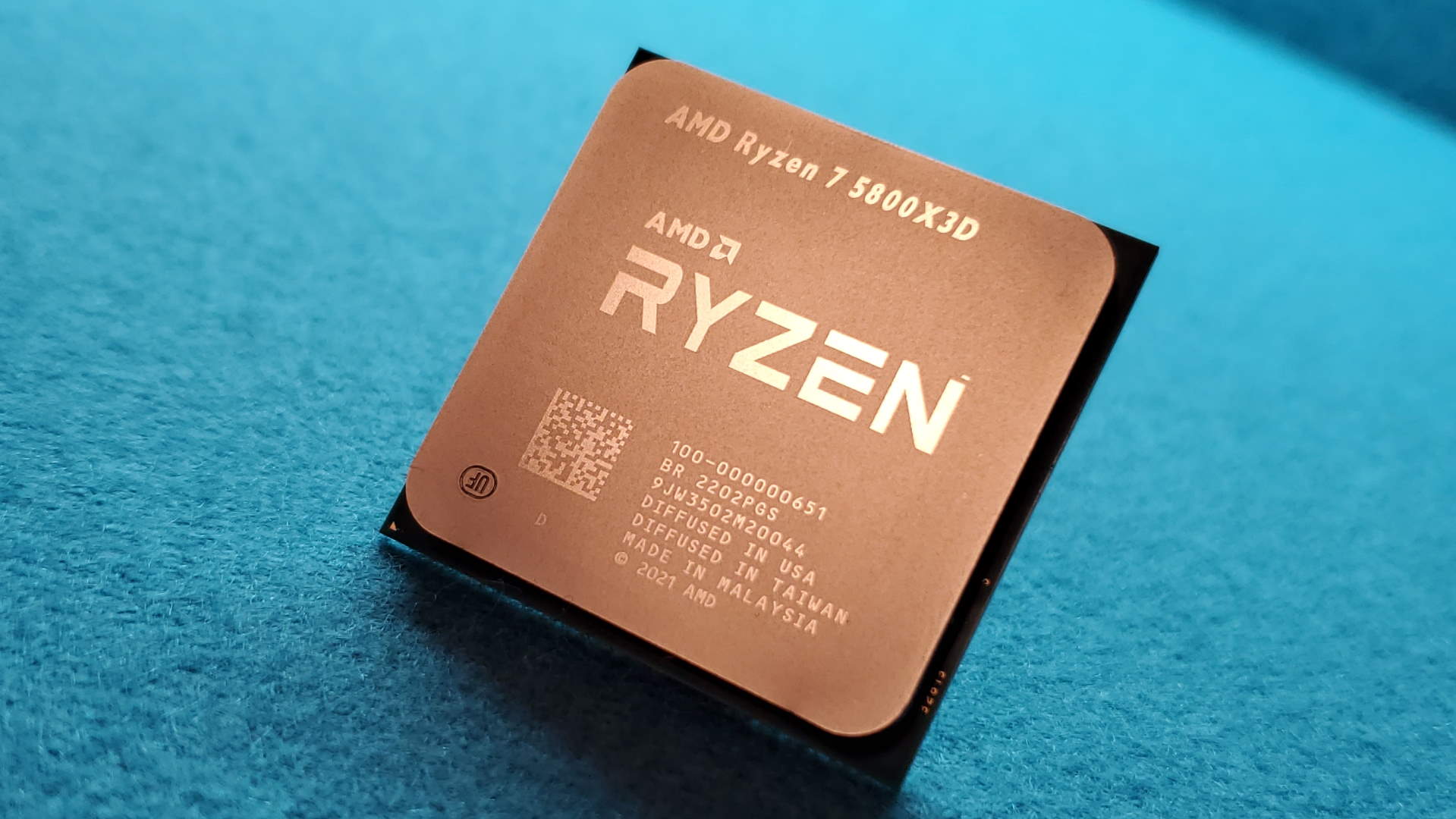
(Image credit: Future)
4. AMD Ryzen 7 5800X3D
It’s AMD’s fastest gaming CPU ever. But does anyone really need the ‘fastest gaming CPU’ in their gaming PC?
Cores: 8 | Threads: 16 | Base Clock: 3.4GHz | Boost Clock: 4.5GHz | Overclocking: No | L3 Cache: 96MB (32MB + 64MB V-Cache) | TDP: 105W
Integration of 3D V-Cache is excellentAlmost Alder Lake levels of gamingEfficientRuns surprisingly hotHas to run low-clocked than 5800XCosts more than a 5900X
The AMD Ryzen 7 5800X3D is the fastest gaming processor the red team has ever made. It also offers a value proposition Intel's elite gaming CPUs cannot compete with, even if they are actually the faster chips in the final reckoning. But that doesn't change the fact that AMD's new chip is a technically impressive beast, using the latest packaging processes from TSMC to bung an inordinate amount of cache into its new CPU.
Because, after all, what do you do when you can't squeeze any higher frequencies out of your processor architecture? You stick a whole lot more cache memory into it and hope for the best. That's what AMD has done on the GPU side with its Infinity Cache, pairing up to 128MB with its RDNA 2 graphics cards, to great effect, and now it's doing the same to its CPUs.
The Ryzen 7 5800X3D is architecturally identical to the standard Ryzen 7 5800X, using the same Zen 3 processor design, and therefore the same chiplet setup that has made AMD's recent generations of CPU such world-beaters. That means you're getting the same eight-core, 16-thread layout in a single chiplet (so no potential inter-chiplet latency issues), but a slightly slower clock speed because of a necessarily lower voltage.
In general, the Ryzen 7 5800X3D either essentially matches or outperforms the Ryzen 9 5950X. That's a great result considering the top Ryzen is still an expensive CPU, and more than ever just a productivity chip and little else. There are also a few times where the new Ryzen CPU outperforms the standard Core i9 12900K, which again is a great achievement. Though, for the most part, it lags behind the Golden Cove microarchitecture of the Alder Lake part when it comes to gaming.
It's a technically elegant, efficient CPU that delivers on its promises. It can't quite beat Intel's hulking brute of a Core i9 12900KS in the frame rate war, but it still offers the majority of AMD users an easy upgrade path to gaming performance that is not far off. And for a fraction of the price and power demands, too.
Read our full AMD Ryzen 7 5800X3D review.
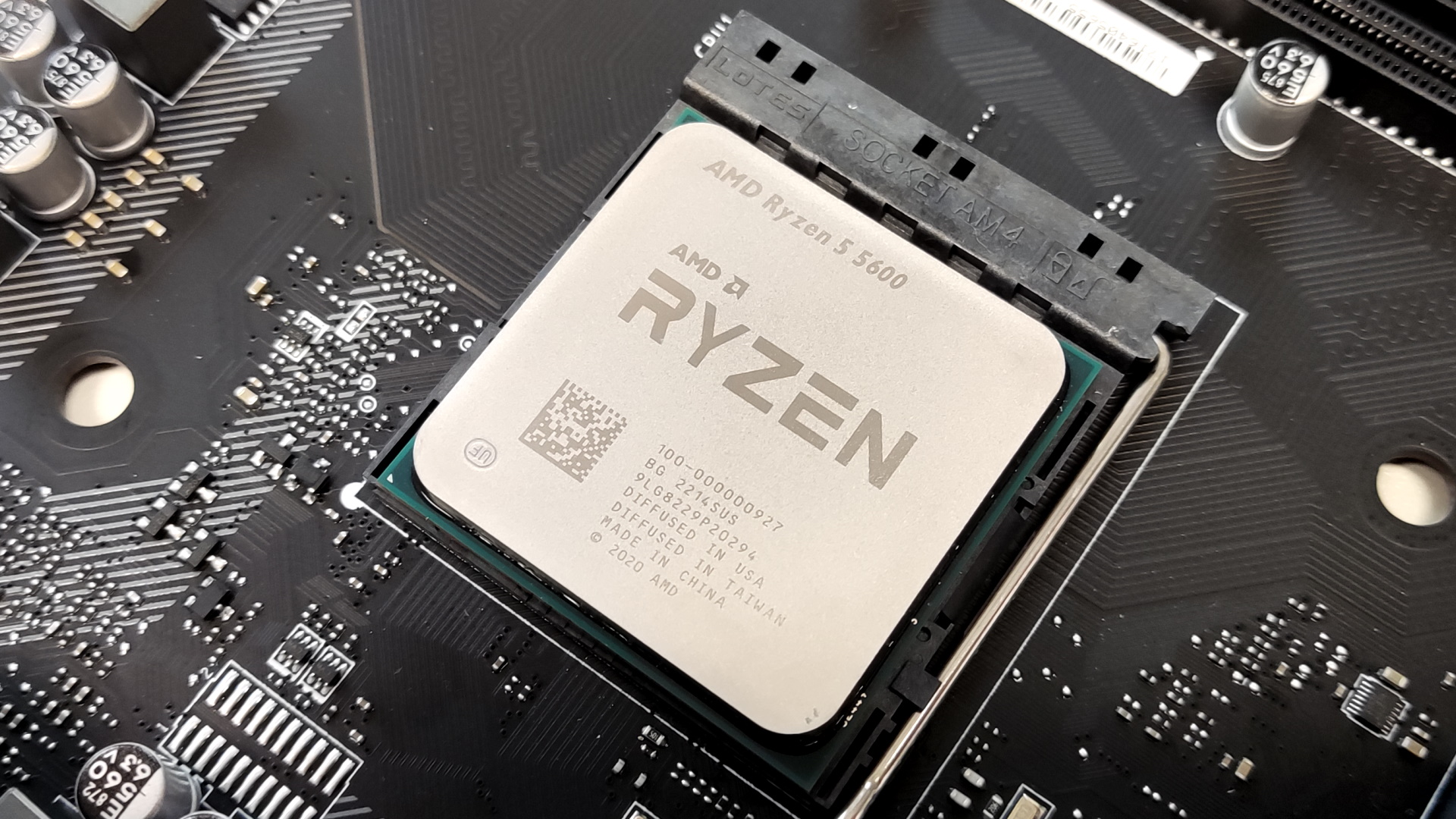
(Image credit: Future)
5. AMD Ryzen 5 5600
AMD’s most affordable, and available, Zen 3 CPU today
Cores: 6 | Threads: 12 | Base Clock: 3.5GHz | Boost Clock: 4.4GHz | Overclocking: Yes | L3 Cache: 32MB | TDP: 65W
Ace gaming performanceStrong value for moneyDecent overclocking potentialWraith Stealth included5600X doesn't cost much moreLags behind Core i5 12600KZen 4 is coming soon
The Ryzen 5 5600 is a cheaper take on the 5600X, with slightly lower operating frequencies, but it's cheaper too. This is AMD's response to the release of Intel Alder Lake, specifically, the Core i5 12400—Intel's chip just pips it in gaming performance and is available for less than the 5600X. That said, the reason we still feel the Ryzen 5 5600 is worth mentioning is that, while it's a great chip in its own right, it's also a lot cheaper if you're upgrading from another older AM4-compatible processor.
Say you have a B450 motherboard in your PC today with a previous generation AMD Ryzen chip, you could make a simple swap for the Ryzen 5 5600 if you wanted to. That could save you a lot of cash on a compatible motherboard, which you'd definitely need to drop if you picked up an Intel 12th Gen chip.
There's also very little between any of the Ryzen 5000 chips in games, which means you'll hit the same frame rates with this chip as you will the more expensive Ryzen 9 5900X. Which is incredible when you think about it—top-tier performance from the most affordable Zen 3 CPU? We'll say yes to that every single day.
This does have half the core count of the 5900X, rolling in as it does with six cores and 12 threads. However, this is only an issue with those more serious workloads, which is more than sufficient for more reasonable stuff.
The Ryzen 5 5600 also bucks the Ryzen 5000 family's trend by shipping with a Wraith Stealth cooler, so you don't have to drop extra money on a third-party chiller. You don't need to, but if you do, you'll hit higher clocks for longer and also open up the wonderful world of overclocking, which could make it worthwhile. This is a decent little overclocker, and while it won't affect gaming much, it'll help in other areas nicely.
Read our full AMD Ryzen 5 5600 review.
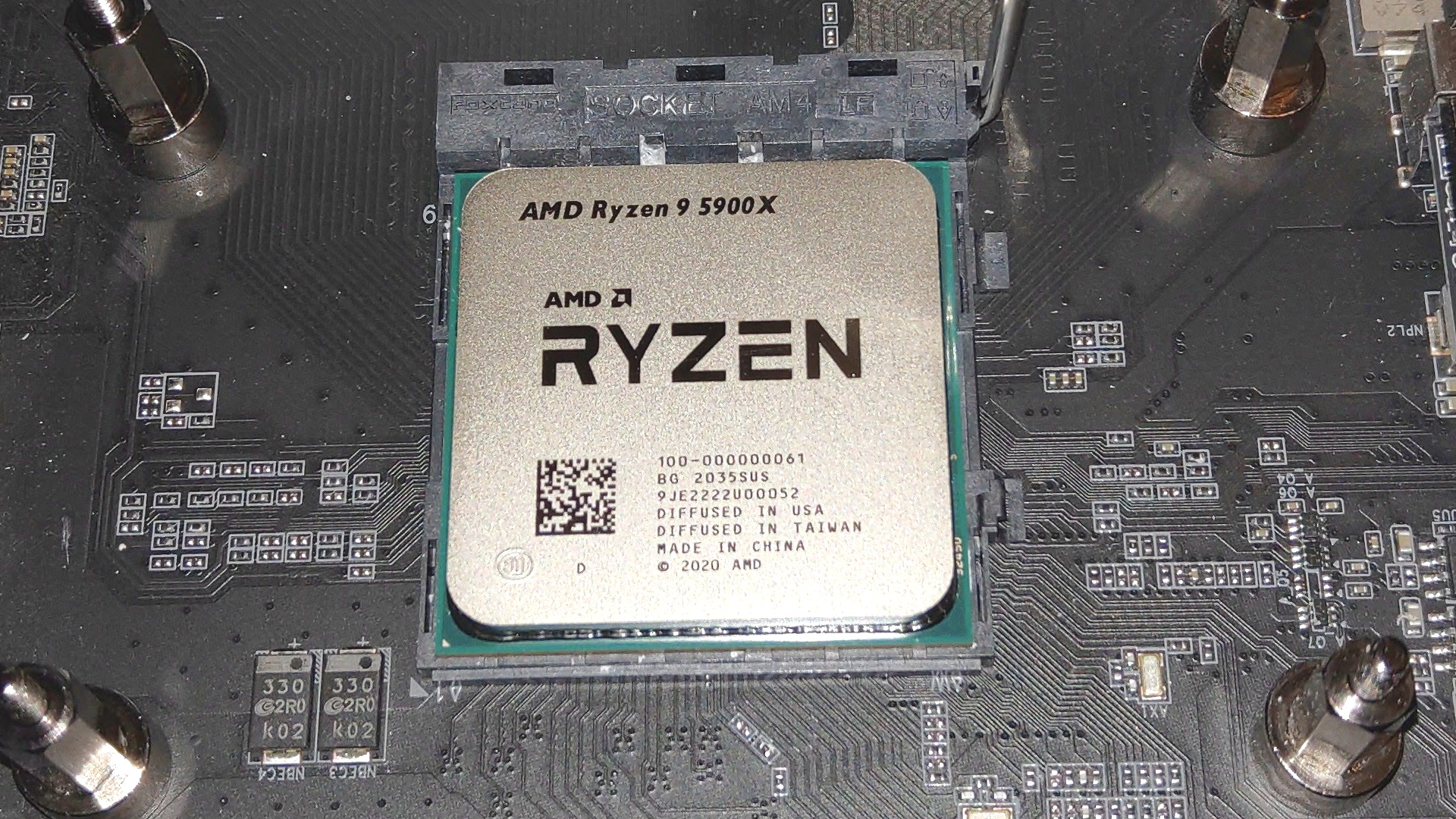
(Image credit: Future)
6. AMD Ryzen 9 5900X
AMD’s best CPU for serious performance at a reasonable price
Cores: 12 | Threads: 24 | Base Clock: 3.7 GHz | Boost Clock: 4.8 GHz | Overclocking: Yes | L3 Cache: 64 MB | TDP: 105 W
Great gaming performanceFast and efficient architectureAffordable platformNeeds a proper 3rd-party cooler
AMD's Zen architecture has improved with each generation, but the fact that AMD managed to knock out a 19 percent IPC improvement with Zen 3 is nothing short of staggering. The key takeaway for us as gamers is that this improvement means AMD pushed Intel to improve, and improve it did with Alder Lake.
Whatever resolution you are gaming at, this processor can handle it and keep your graphics card of choice fed with many juicy frames. That this is a 12-core, 24-thread monster means that it can cope with anything else you throw at it as well. So if you have dreams of 3D rendering, video editing, or any other serious tasks, you'll know that you have the raw grunt to handle it. That it won't hold you back when gaming makes it even sweeter.
The only real downside is the pricing and the dropping of the Wraith cooler—don't forget to factor in you'll need a chip chiller when you buy. You do get what you pay for, though, and this is a phenomenal chip for gaming and anything else you might want to do.
If you're in the market for absolute power, you could step up to the Ryzen 9 5950X, which gives you 16 cores and 32 threads. However, it costs $250 more, and for gaming purposes and even most content creation chores, the 5900X is more than sufficient.
Read our full AMD Ryzen 9 5900X review.
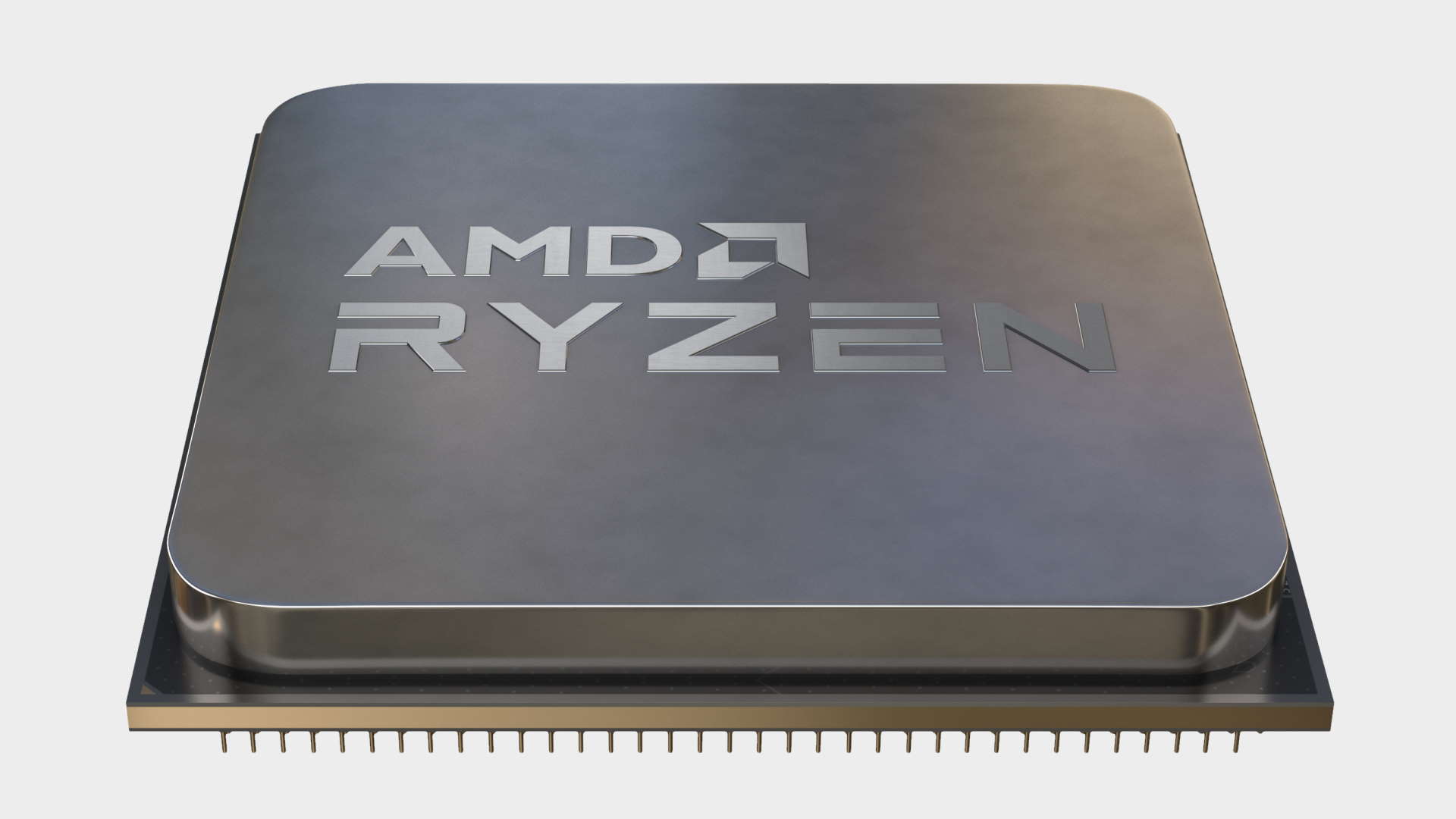
(Image credit: AMD)
7. AMD Ryzen 7 5700G
The best chip that doesn’t need a graphics card
Cores: 8 | Threads: 16 | Base Clock: 3.8 GHz | Turbo Clock: 4.6 GHz | Overclocking: Yes, 5.0-5.3 GHz typical | L3 Cache: 16 MB | TDP: 65 W
The best Integrated GPUExcellent thermals and power consumptionStrong all round performanceLacks PCIe 4.0Needs fast memory to be at its bestExpensive for an APU
AMD's APUs are the best processors to drop into your rig if you're not going to use a discrete graphics card, but still want a modicum of gaming performance out of your system. And the AMD Ryzen 7 5700G is the best of the latest Zen 3 based chips to deliver that.
Unlike previous APU offerings from AMD, the Ryzen 7 5700G is far more of a jack-of-all-trades chip because we are talking about an eight-core Zen 3 CPU component with 16 threads and a powerful Vega-based GPU to back it up. That makes this a chip that's almost up there with the best of the Ryzen 5000-series CPUs in processing power, but with the graphical grunt to deliver 1080p gaming on low settings in some seriously demanding titles.
Board walk
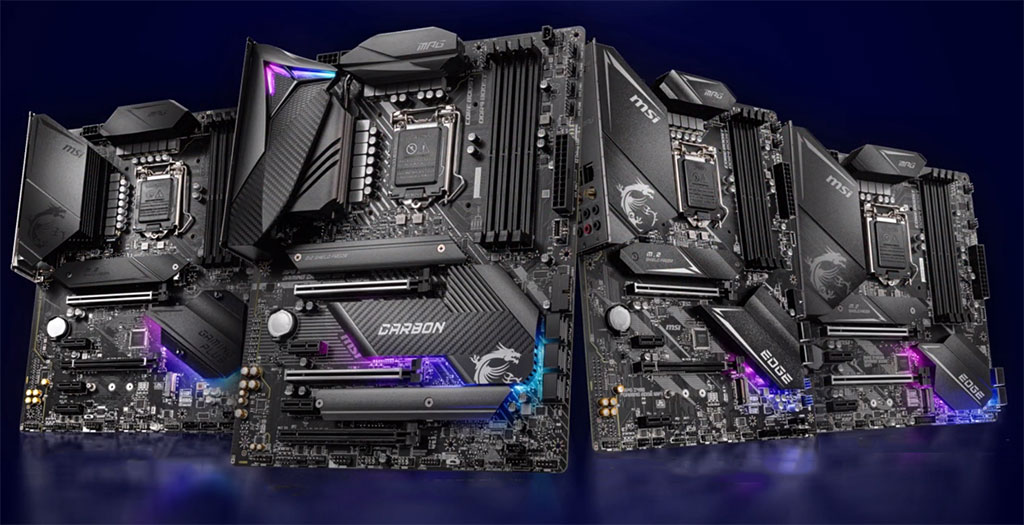
(Image credit: MSI)
Best gaming motherboard: the best boards around
Best AMD motherboard: your new Ryzen's new home
Best Intel Z490 motherboard: Intel's premium boards
In a GPU drought, that makes the 5700G a tantalizing APU as it will get your new gaming PC up and running. At the same time, you wait for discrete graphics cards to be available and without compromising too heavily on your system performance in the meantime.
The issue is that, as the 5700G is a monolithic design rather than chiplet, there are some performance differences compared to the standard Ryzen 7 5800X, a straight eight-core, 16-thread CPU without graphics. It also lacks PCIe 4.0 support to run the fastest SSDs and demands high-speed memory to make the most of its GPU power. But it's still an excellent all-around AMD processor and a handy option when graphics cards are still so rare.
Read our AMD Ryzen 7 5700G review.
Best gaming PC | Best gaming keyboard | Best gaming mouse
Best gaming chair | Best VR headset | Best graphics cards
The best CPU for gaming FAQ
How do you test CPUs?
While gaming resolutions run from 720p to 4K, we largely test at 1080p. This will show the most significant difference in gaming performance you’re likely to see and pushes the CPU into the spotlight instead of the GPU—an Nvidia GeForce RTX 3080 in this case.
We use a mix of motherboards depending on the platform, but all high-end to ensure as level a playing field as we can. These boards include the Asus ROG Maximus Z690 Hero, MSI MPG Z490 Carbon WiFi, and Gigabyte X570 Aorus Master.
When it comes to memory, we use Corsair’s Dominator DDR5 RAM at 5,200MHz effective for 12th Gen Intel processors, while 11th Gen processors are tested using Corsair Vengeance Pro RGB sticks at 3,600MHz effective. The AMD test rig uses Thermaltake DDR4 3,600MHz effective.
To further eliminate any bottlenecks, a high-speed PCIe 4.0 NVMe SSD was used across each system, each loaded with Windows 11 and our suite of benchmarking applications and games.
Liquid cooling is also used on all test rigs to ensure these chips are not restricted thermally.
Our benchmark suite includes 3DMark Time Spy, Civ 6’s turn benchmark, Total War: Three Kingdoms, Assassin’s Creed: Valhalla, Metro Exodus, F1 2021, Shadow of the Tomb Raider, Cinebench R23, SiSoft Sandra, x264 v5, and PCMark 10.
Where can I read all of PC Gamer's CPU reviews?
AMD CPU reviews:
AMD Ryzen 9 5950X AMD Ryzen 9 5900X AMD Ryzen 7 5800X AMD Ryzen 7 5700G AMD Ryzen 5 5600X Threadripper 3970X and 3960X AMD Ryzen 9 3950X AMD Ryzen 9 3900XT AMD Ryzen 9 3900X AMD Ryzen 7 3800XT AMD Ryzen 7 3700XAMD Ryzen 5 3600XT AMD Ryzen 7 2700X AMD Ryzen 7 1800X, 1700X, and 1700 Threadripper 1950X and 1920X AMD Ryzen 5 2600X AMD Ryzen 5 2400G AMD Ryzen 5 1600X, 1600, 1500X, and 1500 AMD Ryzen 3 2200G AMD Ryzen 3 1300X and 1200
Intel CPU reviews:
Intel Core i9 12900KIntel Core i5 12600KIntel Core i5 12400Intel Core i9 11900K Intel Core i5 11600KIntel Core i5 11400FIntel Core i9 10980XE Intel Core i9 10900KIntel Core i5 10600K Intel Core i9 9900K Intel Core i7 9700KIntel Core i9 7980XE Intel Core i9 7960X Intel Core i9 7900X Intel Core i7 8700K Intel Core i7 7700K and Core i5 7600K Intel Core i5 8400
What motherboard is right for my CPU?
Alder Lake is the most recent platform to be released, and while initially only Z690 motherboards were available, Intel and its partners have since released cheaper chipset such as H670, B660, and H610. These are available supporting DDR5 (new) and DDR4, so pick that side of things carefully.
The latest AMD Ryzen 5000 CPUs still use the AM4 socket and are only compatible with X570, B550, and A520 motherboards (oh, and B450 and X470 motherboards).
Whereas Intel’s Comet Lake chips use the LGA 1200 socket, Rocket Lake introduced 500-series boards. Unless you’re desperate for the still slightly awkward Intel PCIe 4.0 solution which the latest Intel chips offer, go with either a Z490 or cheaper B460 motherboard to save some cash.
Is Intel or AMD better?
This is a rather loaded question. AMD has held the top spot for a long time, with its Zen architecture making for some incredible leaps in performance, but Intel has stolen the crown with its Alder Lake family, specifically the Core i5 12600K. The fact that it’s a completely new kind of hybrid CPU is almost by the by, it’s just a really strongly performing chip.
It’s worth remembering that most games are GPU-limited, which means the graphics card is the limiting factor in terms of performance, and you would likely see the same essential frame rates with either CPU manufacturer when a discrete graphics card is used. This is especially true as you up the resolution, with 4K having little between the top chips.
Should I overclock my CPU?
The honest answer is: no. Overclocking your processor is not necessarily the risky move it once was, but equally, the benefits of doing so have drastically dropped in recent times. When we’re talking about gaming performance, having a slightly higher clocked CPU can make a bit of a difference, but arguably your graphics card will be the part that limits the speed of your system.
There is also the point that overclocked CPUs create more heat, require more intensive and expensive cooling solutions, need those coolers to work harder, and are, therefore, often louder.
For us, overclocking your CPU to gain real-world performance benefits is not something we’d recommend most PC gamers do.
Jargon buster
Caching – A small segment of high-speed memory dedicated to storing and executing frequently used commands/instructions to speed up software execution. CPUs contain caches designated as Level 1, 2, and 3, with L1 being the fastest and smallest and L3 being the slowest and largest.
Core – Modern CPUs can contain anywhere from two to 70+ cores (in supercomputers), though CPUs housed in most consumer machines will generally carry between four and eight, with AMD's latest CPUs sporting up to 16 cores.
Clock speed – The speed at which a CPU can execute instructions, measured in hertz. A processor with a 3.7 GHz clock speed can process 3.7 billion instructions a second. Clock speed is one of the most critical factors for determining performance in games and workload functions.
Heat sink – A cooling solution for PCs that utilize fans or liquid cooling (active) or aluminum radiators (passive) that rely on convection to regulate a component's temperature.
Hyper-Threading (SMT) – Intel terminology for a tech that allows a processor to handle two sets of instructions 'threads' simultaneously. AMD and other CPU vendors call this SMT, Simultaneous Multi-Threading.
Socket type LGA (Land Grid Array), PGA (Pin Grid Array), or BGA (Ball Grid Array) – The way a CPU interfaces with the socket on a motherboard. LGA is used on Intel sockets with pins as part of the socket. AMD's AM4 solution, PGA, has the processors' pins, which fit into holes on the socket. AMD's Threadripper CPUs also use LGA sockets. A BGA socket is when the processor is permanently soldered to the motherboard, typically on a laptop.
TDP – Thermal design power, the maximum amount of heat a system or chip can produce that the attendant cooling system is designed to deal with under workload. This term can apply to PCs as a whole, GPUs, CPUs, or nearly any other performance component that generates heat and is in large part an indicator of how much power a part draws.
Thread – A thread refers to a series of CPU instructions for a specific program. Older CPUs and SMT disabled run one thread per core, but most modern AMD and Intel CPUs can simultaneously run two threads, sharing some resources (e.g., cache).
Turbo Boost – Intel technology that allows processors to run at higher clock speeds under demanding loads. AMD also supports turbo or boost clocks, and we use the terms interchangeably regardless of CPU vendor.




